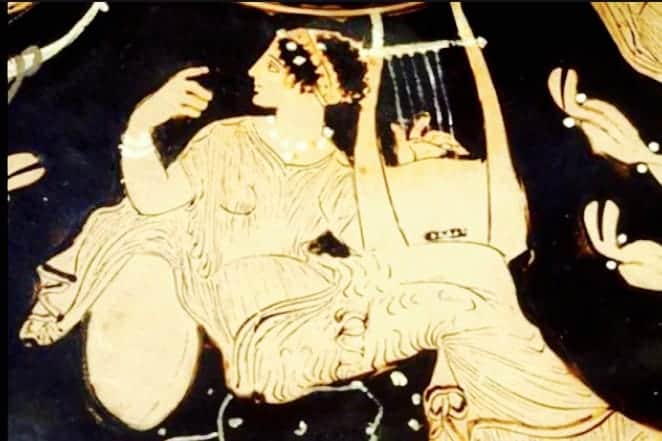
By Chrysanthe Ntemos
Music is the most archaic of all sciences and not only the arts as most may think. It is regarded as science, since it consists of mathematical fractions, frequency, accuracy, pitch, sounds, rhythm and melody- all of which as a miscellaneous form it.
From Ancient Greece, we understand how the Ancient Greeks were able to observe the frequencies of the spheres through the universe- as the first to enscript this was Pythagoras. The Ancient Greeks had invented the monophonic sound, which is one voice from which the instruments of the time were able to play and to which a rhetoric poet would recite simultaneously.
Such instruments were the double flute ( δίαυλος) and the lyre (λύρα). Through the ages music has undergone many transformations. The formation of music analysis consists of its notations, specified terminology, theory to which a composition is based upon thus it can be read, executed with instruments, played, sung and danced to- proving that music is an international language.
After completing my Conservatorium Music Studies in Sydney, Australia and arriving in Greece many years ago, I began teaching in three private music schools, which are called Odeions ( Ωδεία) in Tripolis of Arcadia. I taught all levels of classical piano forte as also theory and solfez, which are music singing exercises. Each piano lesson consisted of individual lessons and group lessons in singing and theory.
My aim was to enhance the correct meaning of playing the piano where proper technique has to be achieved, fluency, accuracy, expression, synchronisation and feeling. Each year my students would attend the final year concert and examinations where the committee from the Ministry of Culture would come from Athens and appoint fellow teachers and myself to attend the examination's board.
Greece's music education has been well recognised as a high standard of achievement amongst the European Community and this of course honours Greece. From many years of experience, I have come to understand the essence and the vast benefits of music. It stimulates the human brain as to properly function and to become alert. The brain capacity is then reinforced and the two hemispheres as is with the knowledge of Ancient Greek, develop to a large scale.
Students whom have learnt music develop mature scepsis and retain memory. It has the ability of penetrating and moulding peoples' characters according to the type and style of music. Scientific studies have indicated that children with autism and dyslexia gradually improve to its calming effects.
I have come to realise that the more intensive and prolonged the music studies are, the more the students benefit from it as their capabilities and abilities improve through proper syntax in different language skills- as well as creativity and become inspired in other subjects as well.
In addition, the aid of music has a positive impact and metamorphosis of the moulding of the character. This is evident due to the fact that they develop respect, self-control, discipline and cultivation of the mind- as also to analyse and not to be surfaced.
Another fact is the emotional engravement where music penetrates the heart and soul and enables feelings, passion and expression to surface. Teaching classical music and traditional Greek music for nearly thirty years, I have to admit that I have been proud and impressed to have taught so many students most of whom have progressed themselves and achieved in receiving music diplomas themselves and who have recognised wholeheartedly my efforts. I thank all of my students. The didagma which I have received from all is moral satisfaction, which is priceless.
* The opinions expressed in this article are those of the authors and do not necessarily reflect the view of those at Greek City Times.
